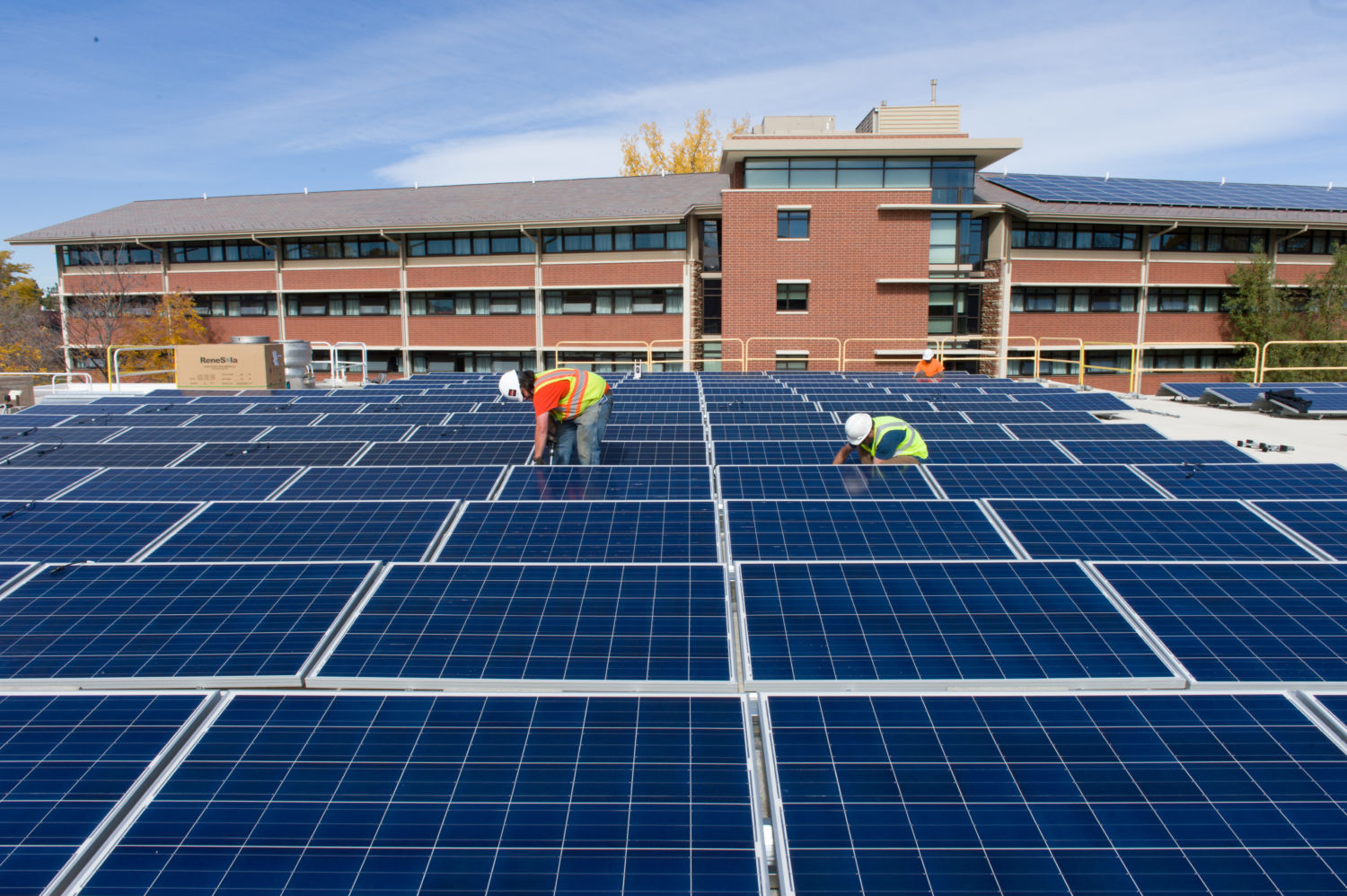
The continued heavy reliance on fossil fuel-powered generators in Nigeria by government institutions, businesses and households for electricity supply constitutes a major threat to the nation
The Federal Government
BP has paid $200m (

The Federal Government has been urged to invest more in solar energy to meet up with the electricity challenges.
At the End of the Year/Graduation of ABITECH Engineering College in Ikorodu, Timothy Obano, the Chief Executive Officer, said the potential of solar in Nigeria as a source of power is
Last year, Tesla merged with struggling SolarCity, making Elon Musk CEO of both companies. The tie-up hasn’t hurt Tesla in 2017 as the company’s stock has surged above $300 per share and the combined enterprise hit a market capitalization of over $50 billion.
That doesn’t mean it wasn’t a terrible deal. Tesla’s balance sheet instantly became loaded up with SolarCity debt, and what had been primarily a carmaker was suddenly responsible for rolling out a new solar roof product, at a time when it should have been all-hands-on-deck to launch the Model 3 mass-market vehicle.
The Model 3 is woefully behind schedule at this point, and although the solar roof is compelling, The Solar City side of Tesla business isn’t any more coherent than it was a year ago.
Musk is also CEO of SpaceX, and last week Morgan Stanley analyst Adam Jonas teased a merger with Tesla , arguing that such a deal would yield powerful synergies. The financial mechanics of how a SpaceX-Tesla merger would happen are both speculative and unclear; in July, SpaceX raised $350 million, bringing it valuation to $21 billion. An IPO has long been discussed.
Musk might not want to run two public companies.
But maybe Musk doesn’t want to be running another public company. He’s expressed some exasperation with playing that role at Tesla, where investors have the carmaker under constant scrutiny and short sellers are always circling like sharks. SpaceX’s mission is ultimately more ambitious than Tesla’s – the whole go-to-Mars thing – and the company have been wowing the the space community by routinely launching and landing rockets.
Tesla doesn’t have enough cash to buy SpaceX outright, so investors would have to accept a largely stock-based deal, and that might make sense to many of them: since its own 2010 IPO, Tesla shares have returned over 1,ooo%, and several analysts have said that the stock hundreds of dollars of upside potential from its current level.
Managerially, putting all the pieces of Musk’s master plan – electric cars, solar power, space exploration – under one roof could ease the anxieties of anybody who thinks he’s now stretched too thin.
Unfortunately, a Tesla-SpaceX merger would raise a major issue: unlike SolarCity, the company wouldn’t be shifting a massive amount of debt to Tesla’s balance sheet, but it would be shifting monumental risk. Space is dauntingly expensive when everything is going right but ruinously costly when things go wrong. That’s why governments, for the most part, have been the only ones aiming for large-scale goals in the final frontier. Tesla-SpaceX would expose Tesla to colossal losses at a time when it’s already posting record negative earnings.
There are some serious positives in a merger.
In July 2017, members of an oil exploration crew working for the Nigerian National Petroleum Corporation, NNPC, were ambushed and abducted by Boko Haram armed insurgents near Jibi Village in Gubio Local Government Area of Borno State.
At least 27 people died in the attack after rescue efforts by soldiers and members of the Civilian Joint Task Force, CJTF. The victims, who included soldiers, staff of University of Maiduguri, engineers and some personnel of the Civilian Joint Task Force, CJTF, were ambushed while on an oil exploration mission in Lake Chad.
The Nigerian government, in its reaction, halted exploration in the region.
In September, few months after the attack, the NNPC announced its resolve to commission another team to handle a similar mission in the Sokoto basin.
The move is believed to be part of President Muhammadu Buhari
After about 150 years of reportedly living without any form of electricity supply, Angwan Rina, a remote community in Plateau State, north central of Nigeria, would finally be connected to electricity but not from the grid.
Rather, it would get its first ever electricity supply from the sun that has shined on the roofs and heads of its inhabitants for the same 150 years it has lived without electricity, through a solar-powered mini-grid plant.
Being one of the two beneficiary communities of the state
A start-up in Nigeria has developed a way to recycle old freezers and turn them into solar-powered coolers to help Nigerians grappling with power outages easily refrigerate their food.
Go-Solar-Africa collects discarded freezers or buys used ones from dealers to have them refurbished and fitted with solar gadgets.
The West African nation has chronic power shortages due to a dilapidated transmission grid and natural gas constraints while the new generating and distribution companies are still struggling to be profitable since the 2012 privatization of the sector.#
Source – www.trtworld.com
[button style=”theme-bg” size=”btn-lg” btn_disable=”0″ url=”http://atlanticwastepower.com/contact” ]Request for free Quotation – Call – 01 888 1040[/button]
The state of South Australia is expected to announce Friday that it has powered up the world

